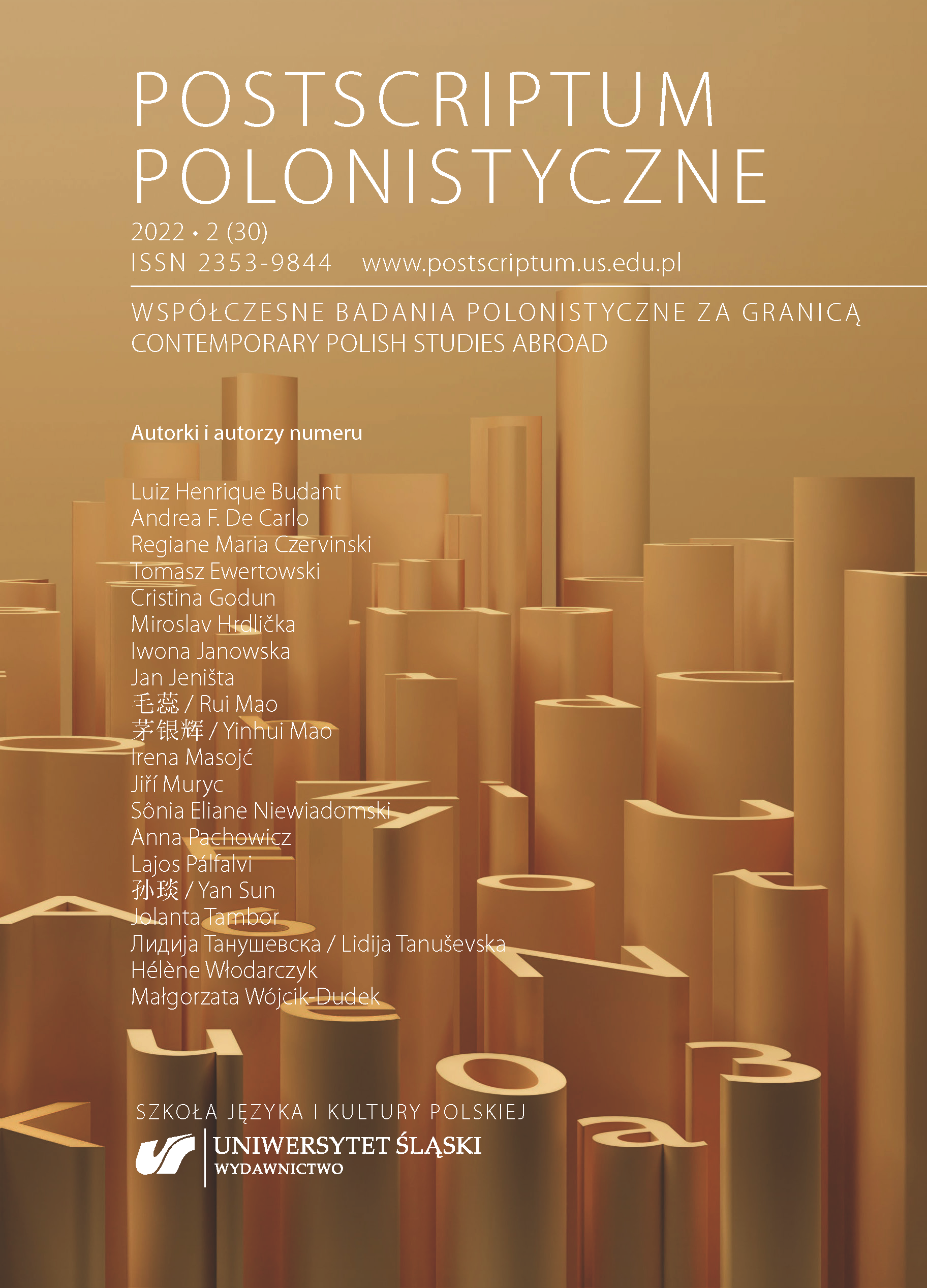Kell-e nekünk magyar-lengyel irodalmi komparatisztika?
Do We Need Hungarian-Polish Comparative Literary Studies?
Author(s): Lajos PálfalviSubject(s): Studies of Literature, Comparative Study of Literature, Hungarian Literature, Polish Literature, Philology, Translation Studies, Theory of Literature
Published by: Wydawnictwo Uniwersytetu Śląskiego
Keywords: comparative literary studies; world literature; Polish-Hungarian literary contacts
Summary/Abstract: In the interwar period (1918–1939), prior to the development of the comparative literature discipline, the most important Polish authors would be included in the canon of world literature in studies published in Hungary. Mihály Babits’s great synthesis, Az európai irodalom története [History of European Literature], only includes the names of Adam Mickiewicz and Henryk Sienkiewicz (without stating the titles of their works), because Babits divided the individual national literatures into “major” and “minor” ones, and considered both Polish and Hungarian literature to belong to the latter group. In turn, Antal Szerb, author of the still popular A világirodalom története [History of World Literature], described Polish Romanticism competently in a separate subsection and provided a brief summary of the earlier periods. In his opinion, Polish and Hungarian literature developed parallel to each other, and during the Renaissance both literatures produced poetry at the highest level in the respective national languages. The researcher was convinced that not only were certain periods and individual authors “astonishingly similar”, but that the entire history of both literatures was built on similar principles. In the following decades, data was collected on Polish-Hungarian contacts, focusing on reception and imagology. Factual material was collected confirming Polish-Hungarian literary contacts in the spirit of positivist literary science. Thanks to Endre Bojtár’s many years of systematic work, Central European comparative literature established itself at the Institute for Literary Studies of Hungarian Academy of Sciences. Bojtár contributed to a paradigm shift, with a new category of Central European literature emerging between world literature and Hungarian literature. Another researcher, György Spiró, also worked in the field of regional comparative literature, and compiled a history of drama “from the Enlightenment to Wyspiański’s synthesis”. Not so long ago, in the 1980s, leading Hungarian prose writers such as Péter Esterházy and Péter Nádas, avidly read and commented on the works of Witold Gombrowicz, among others, but subsequent generations lost contact with Polish literature.
Journal: Postscriptum Polonistyczne
- Issue Year: 30/2022
- Issue No: 2
- Page Range: 1-11
- Page Count: 11
- Language: Hungarian

